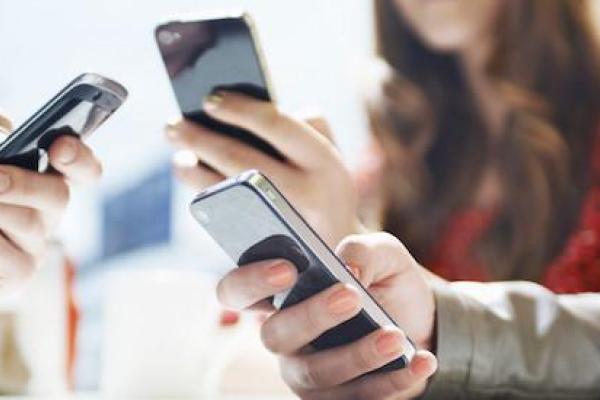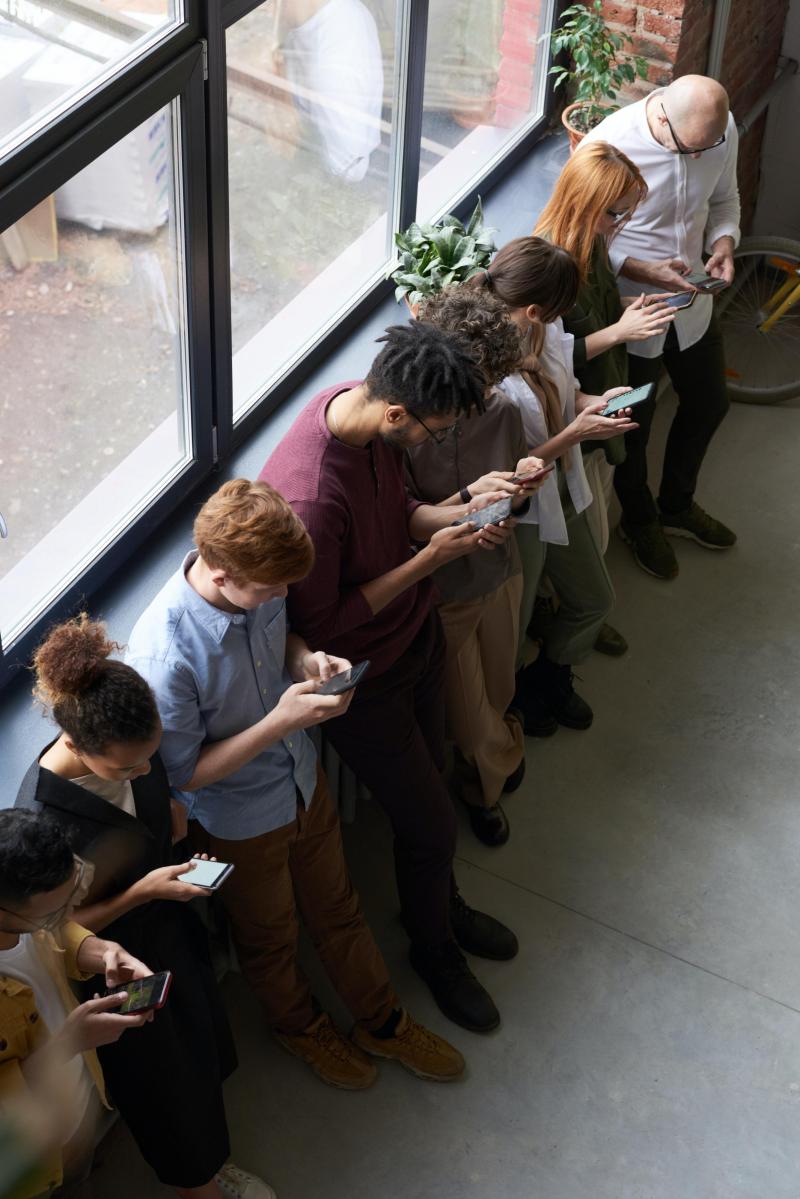Social media
Social media are apps and websites where you exchange messages, photos and videos and comments with family, friends or your professional network.
I think I spend at least an hour or two a day on Instagram, either to check the news, watch videos about football, or to follow my friends.

Did you know this?
Almost everyone uses social media on a daily basis. The younger the age, the more intensive the social media use. Forty per cent of young people between the ages of 18 and 25 use social media for three hours or more every day. 83% of young people look at Instagram at least one a day, followed by YouTube (70%), Snapchat (66%), TikTok (63%) and Facebook (59%). 87% of young people follow influencers on social media, especially on Instagram. Young people also struggle with their social media use. 40% of young people want to be less dependent on it. Girls seem to be more conscious and cautious in their use of social media.
The influence of social media
Social media is ubiquitous and popular with young and old. Young people prefer moving images and short videos. Podcasts are also gaining in popularity.
Positive aspects
Although virtual interaction on social media is not the same as face-to-face contact, social media offer many opportunities to:
- Stay in touch with your family and friends from all over the world
- Share your opinions, interests, talents, ambitions and successes with those around you in a creative way
- Discover new friends and communities
- Keep up to date with current affairs quickly
- Connect with and promote good causes
- Offer or seek emotional support in difficult times
Negative aspects
As popular as social media is, there are also some risks involved for young people:
- Social media can have an impact on your self-image. People often show their best side online, which means that you are constantly exposed to photos and videos that are prettier than reality. The created 'online identity' often differs from reality. Comparing yourself too much to the images of friends or influencers can make you feel insecure and worse.
- The constant alerts and notifications disturb your concentration, focus and sleep.
- High social media use increases feelings of loneliness and anxiety.
- Social media platforms can also be hotspots for trolls who deliberately insult or hurt others through extreme views.
- The unauthorised distribution of sexually explicit images or messages via social media, known as sexting, can also cause suffering. It is a form of cyberbullying.
Beyond the healthy limit
Many young people use social media without any problems. These are signs that your social media use is entering a danger zone:
- You spend hours a day on social media and constantly feel the urge to check your accounts.
- The fear of missing out (FOMO) drives you to constantly grab your phone to check for updates.
- You feel enormous pressure to always post and compulsively react to every notification.
- Your life takes place almost exclusively through your smartphone. Sharing your messages and exchanging photos is often no longer a fun activity.
- You take less care of yourself, and neglect your social contacts, studies, work and daily activities.
- You develop concentration problems and a lack of sleep.

Digital balance
Social media companies use all sorts of tricks to keep you on their platforms as long as possible.
Here are a few tips to keep your social media use in balance:
- Be selective in what you like or follow. Unfollow accounts that make you feel bad. Look for accounts and apps that make you feel good about yourself.
- Check your checking. Turn off your notifications and set a notification when you have been scrolling for, say, 30 minutes so you are more aware of the time. There are apps that keep track of time around your social media use.
- Put your mobile away. Both at the table and at bedtime. Turn your mobile phone upside down and put it on airplane mode, so there is less temptation to check it.
- Disconnect to reconnect. Don't do everything online. Alternate. Meet up with friends, take a walk, read a book, meet up with friends outside.
‘I'm happy that I talked to my friends about my social media use. Now we can look together for solutions which mean I can still take part in online life but this is not more important than "real" life.’
Talk about it
Do you spend too much time online? Can't concentrate in class or is your sleep disturbed by your time on social media? Have a conversation with someone you feel comfortable with and trust, like a good friend, your parents, sister or brother. This can bring relief and help you sort things out. You can also find help together.
If you don’t immediately have the courage to tell someone in your direct surroundings, then try to approach someone who is familiar with similar experiences, such as a GP or a student counsellor at your college or university.

Would you prefer to share your story anonymously? You can always call on Awel (102 or awel.be) or Tele-Onthaal (106 or tele-onthaal.be). If you have suicidal thoughts or questions about suicide, contact the Suicide Hotline (1813 or zelfmoord1813.be). Talking helps.
Seek help
Do you feel that you can't manage on your own? Then it is important to get professional help. You can contact a counsellor who specialises in addiction, for example. More information can be obtained anonymously from Druglijn.be or directly from your doctor.
Multiple types of assistance and help are available, though there is no single magical method that will solve all your problems at once. Practically all types of help have several active elements in common, including:
- enhancing your motivation to quit social media or reduce your social media use
- teaching you to identify risky situations
- enhancing your self-confidence, for example by emphasising your abilities and skills
Worried about a friend?
Have you noticed that a friend spends too much time online and that it interferes with their normal life? Then you may not know what to say or do. Talk about the problem, don't judge but voice your concerns.
Keen to learn, read or hear more about this topic?
Podcasts
TED Talks
Selfhelp
- Drugline.be is the place to go for all your questions about alcohol, drugs, pills, gaming, gambling and internet addiction. You will also find self-tests and self-help modules.
Websites
- Mediawijs has dossiers on social media, cyberbullying, hate speech, sexting, digital balance and online privacy.
- Digimeter and the Social Media and Influencer (SMI) Barometer monitor social media use in Flanders.
- Mediaraven vzw and Ravage offer information on media productions, digital tools and training to explore and extend the boundaries of media.
Powerful stories
You are not alone. Get inspired by other students' stories about vulnerability and doubt. But above all about the power of connectedness.
Go to the stories